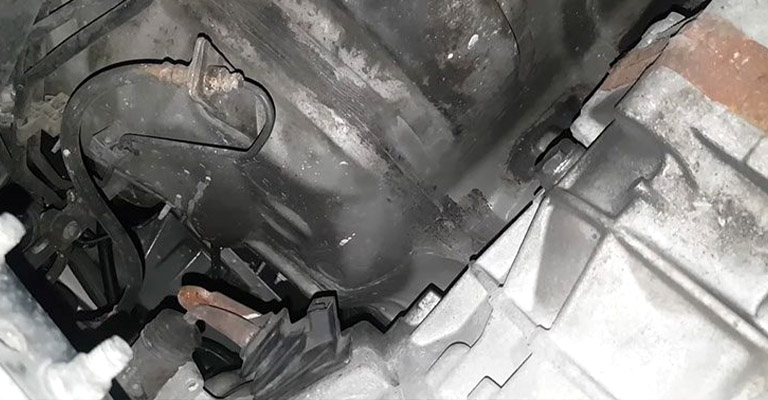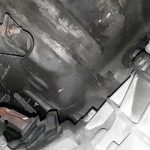If your car has a clutch, it’s essential to ensure the release and throwout bearings are in good condition. If they’re not, replace them as soon as possible to avoid problems down the road.
Adjust the clutch pedal to feel smooth when pressing it, and clean any debris or oil around the mechanism for optimal performance. Keep an eye out for signs of wear and tear on these parts – if they’re starting to show their age, get them replaced ASAP.
Why Does My Clutch Squeak?
There are many ways in which the clutch can wear out or become damaged due to its constant friction on a near-constant basis.
The most annoying noises in cars tend to develop over time, as anyone who drives knows. There is usually a rattling sound that can be difficult to identify. Some noises should not be tuned out, but most learn to ignore them.
Squeaks from the clutch pedal are one of them. The problem isn’t huge, but it isn’t enjoyable nonetheless. Identifying whether your clutch is the problem is easy if you suspect there might be a problem with it.
As you press the pedal, you may hear a high-pitched squeaking, which indicates a clutch problem. This type of noise is usually caused by clutch release or throwout bearing problems.
There’s no need to panic; you can still drive the car until the clutch needs to be replaced if you have a throwout bearing or clutch release bearing that’s starting to go wrong. Driving shouldn’t be affected at all by it.
Check to See If the Clutch Release and Throwout Bearings Are in Good Condition
If the clutch squeaks, it’s probably time for a new release and throwout bearings. To test if these parts are in good condition, you can use a grease gun to coat them with silver grease and see how long it takes to wear off.
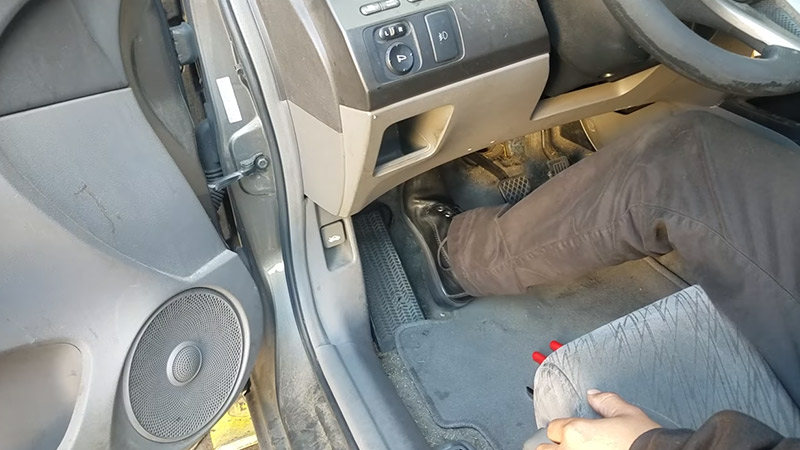
If they’re still noisy after greasing them, your clutch may need replacing. You can also try lubricating the gears with WD-40 or silicone oil before every ride to help reduce noise and friction from shifting gears on your bike/vehicle.
Finally, make sure that all the linkages are tight by fully lubing all the moving joints (clutch plate, slave cylinder armature shafts.)
If They’re Not, Replace Them as Soon as Possible
If your clutch squeaks, it’s probably time to replace it. The longer you wait, the worse the noise will get and the more difficult it will be to fix/repair.
There are a few different types of clutches, each with its unique repair process that should only be attempted by an experienced mechanic or specialist.
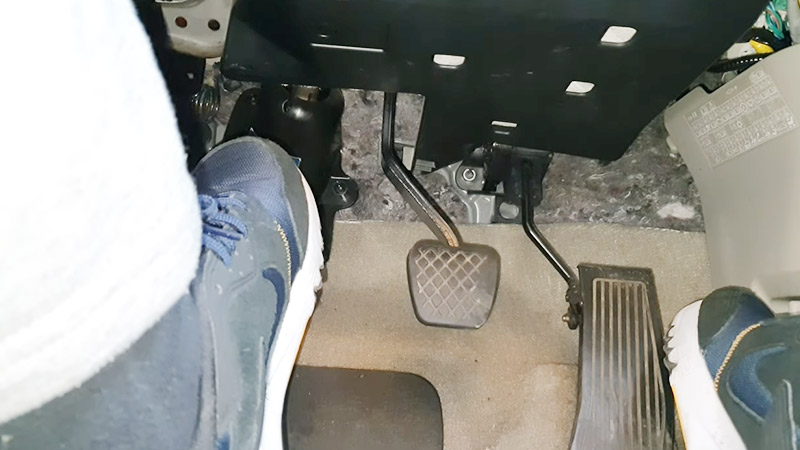
It can also indicate other underlying issues with your vehicle’s suspension, which may require costly repairs or replacements. Don’t put off fixing this inconvenience any longer – make sure to take action as soon as possible so you don’t end up dealing with more significant problems down the line.
Adjust the Clutch Pedal So That It Feels Smooth When You Press It
The clutch pedal can squeak if it is not adjusted correctly. Pull up on the end with the screwdriver to adjust the pedal and slide it to the left or right until it feels smooth when you press down on it.
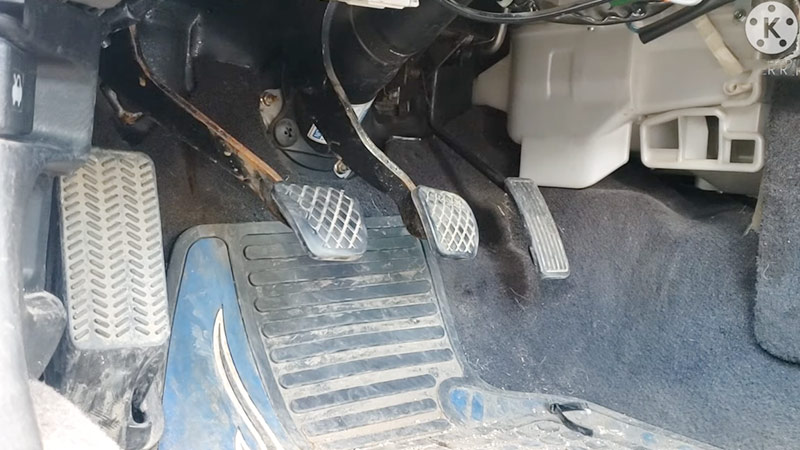
Make sure that there is plenty of lubricant inside and outside of the clutch mechanism as well. If your car has a manual transmission, make sure that you also adjust the shifter linkage to prevent noise from coming from there, too.
Check for tightness around all screws and bolts on your vehicle before making any adjustments – this will help prevent future issues with noises emanating from your clutch pedal.
Clean Any Debris or Oil from Around the Clutch Mechanism
If debris or oil collects around the clutch mechanism, it may be causing the squeak. Cleaning around the clutch can fix this issue and restore normal function to your car’s transmission.
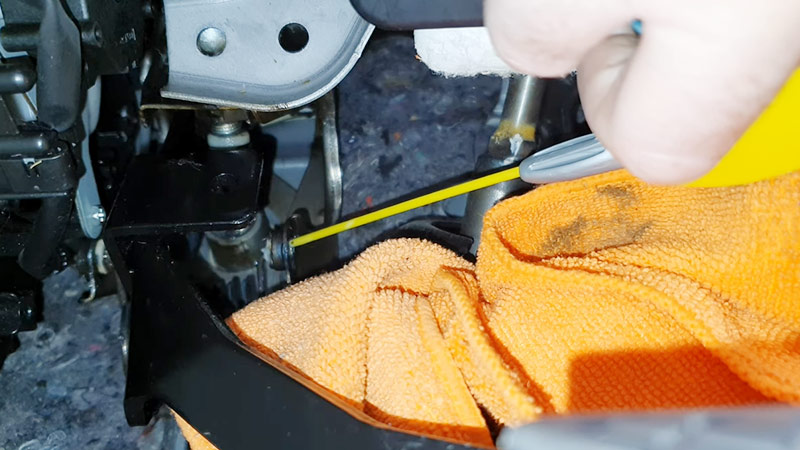
Make sure to remove any stubborn pieces of debris before beginning work; otherwise, you could end up damaging your car further. Be careful not to apply too much pressure when cleaning, as this could damage the components inside of the clutch mechanism.
Can You Oil a Squeaky Clutch Pedal?
If your clutch pedal makes a lot of noise, it might be time to oil it up. Make sure to check the product label and use a compatible lubricant. Over-lubing can worsen things, so wait until the clutch pedal is excellent before putting it back on your bike.
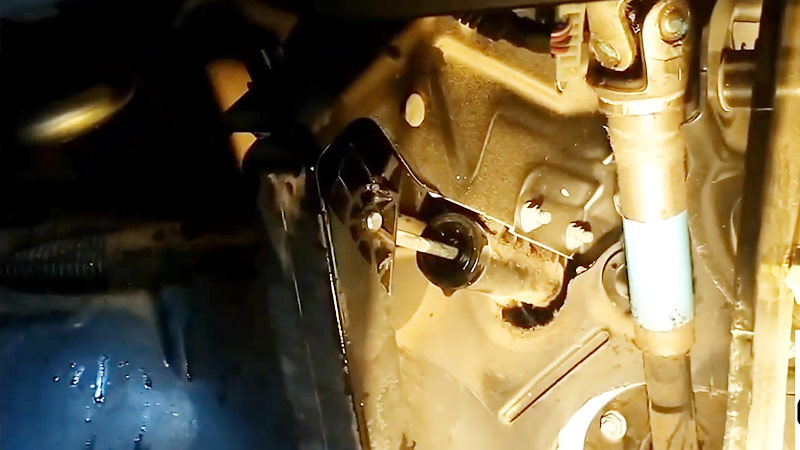
Don’t overdo it – repetitions are necessary for the lubricant to work magic. Finally, constantly monitor your bike’s condition by checking for squeaks or other irregularities after every ride – you may have saved some money and hassle.
Does a Worn Clutch Make Noise?
If you experience clutch noise when you pedal, there may be a problem with the cylinder or components it engages. In some cases, re-greasing the joint or replacing parts can solve the issue; in more extreme cases, replacement of the entire unit may be necessary.
Be aware that if your clutch starts making more noise than usual, it might be time for a new one. Keep an eye out for signs that you may need to replace your clutch–a worn or squeaky one could signal a more significant problem down the line.
How Long Should a Clutch Last?
A clutch is a vital component of your car that helps you shift gears smoothly. While clutches do wear with use, it’s important to remember that they also get wet in the rain and snow, which can reduce their performance over time.
Driving in the snow can cause even more wear on a clutch due to the icy conditions and sudden stopping and starting motions. Over time, debris such as sand or dust will accumulate inside a clutch if it isn’t regularly cleaned, leading to malfunctions down the road.
If your car has an automatic transmission, ensure its clutch is functioning correctly by checking for signs of wear or damage (such as squeaks).
How Much Does It Cost to Replace a Clutch?
The cost of a clutch replacement depends on the make and model of your car and the type of clutch that needs to be replaced. If you have an automatic transmission, you will need to replace the gearbox, cylinder heads, and clutch.
A manual-transmission car may only require a new clutch disc and springs. Check your vehicle’s documentation for specific details about what is required for your particular make and model Clutch Replacement Cost. Be sure to factor in any additional costs such as labor or parts when budgeting for this repair.
To Recap
Clutch squeaking is a common problem with tomatoes and can be caused by a number of factors. A Tomato plant that is not getting enough water, fertilization, or sunlight will likely experience problems with its fruit production and may suffer from clutch squeaking as well.
Inspect your tomato plants regularly for signs of disease, poor pollination, or other problems that could be causing the issue, and take appropriate action to resolve the issues before they lead to damage or death.

